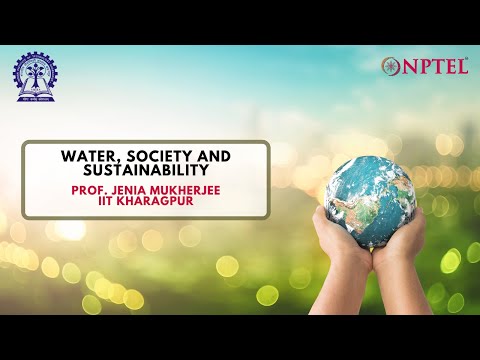Description:
COURSE OUTLINE: The global water scenario is beset by multiple challenges: water availability, severe inequity to water access and entitlements across social and spatial lines, frequent floods and droughts, disputes over corporate control of limited water resources, etc. The world appears to be on track to halve the number of people without access to safe clean water. However, in the urban Global South, this success masks regional and local inequalities and a process of urbanization without infrastructure, which is particularly acute in the growing peripheries of existing cities. Interestingly enough, lessons can be learned from small-scale community water conservation practices and localized needs-driven initiatives.

Water, Society and Sustainability
Add to list
#Science
#Environmental Science
#Social Sciences
#Sustainability
#Earth Science
#Geography
#Water Resource Management
#Environmental Studies